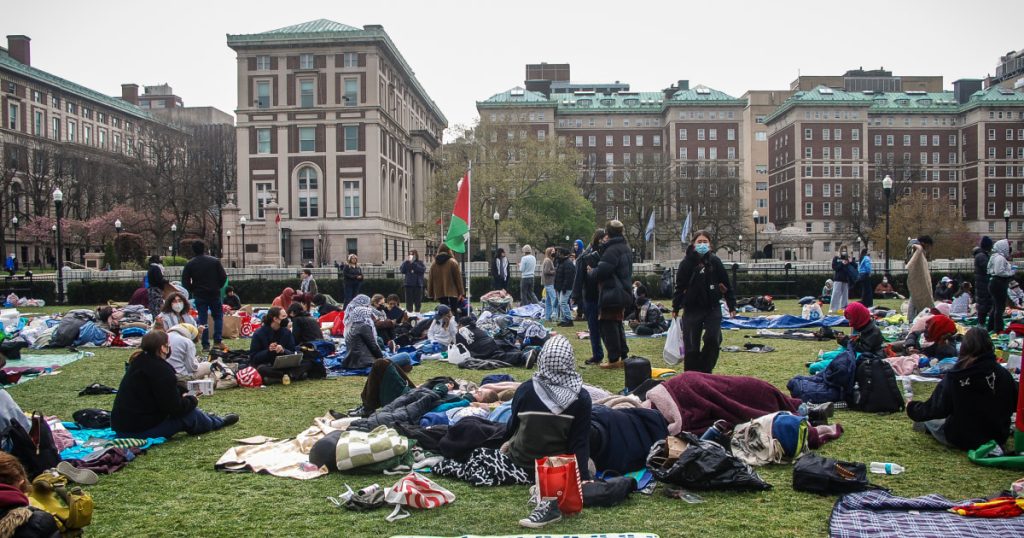Pro-Palestinian student protesters at Columbia University have continued their demonstrations despite mass suspensions and arrests. The protesters were arrested after setting up a tent encampment in support of Gaza on the university’s south lawn. They were accused of trespassing and damaging campus property by the university president. Despite the arrests, protesters like Eliette and Johanna remain committed to their cause, calling their actions “the moral thing to do” and being on the “right side of history.” Demonstrators have gathered on campus, with some praying and sitting in circles despite the crackdown by the university.
Eliette, a Columbia graduate student who was among those arrested, talked about the experience of being detained and released after hours in custody. Johanna, another graduate student, also shared her account of being arrested, taken to NYPD headquarters, and waiting for hours to be processed. Both students expressed physical and emotional discomfort from the ordeal but remained steadfast in their commitment to their cause. While they fear retaliation from the university, they are determined not to be silenced and continue to stand up for what they believe is right.
The number of demonstrators at Columbia has been growing as protesters occupy the campus space. University policies regarding demonstrations have come under scrutiny, with the new policy implemented in February that limits protest activity to certain outdoor areas on weekdays from noon to 6 p.m. with prior approval. The encampment set up by the protesters was not authorized, leading to the crackdown and arrests. Columbia and Barnard College have not disclosed how many students were suspended or for how long, but the commitment to enforcing protest rules remains clear from the university’s statement.
The tensions over free speech on college campuses have escalated since the conflict between Israel and Hamas began in October. This has sparked debates and actions on campuses across the country, with students and universities grappling with balancing the right to protest with maintaining order and safety on campus. The situation at Columbia reflects this larger trend of students taking a stand for their beliefs, facing consequences, and continuing to push for change despite the challenges they may encounter.
The activists at Columbia are part of a broader movement advocating for Palestinian rights and protesting the actions of the Israeli government. The backlash they have faced from the university, including arrests and suspensions, has not deterred them from continuing their demonstrations. The protesters see themselves as part of a historic moment and are determined to make their voices heard, even in the face of adversity. The ongoing demonstrations at Columbia highlight the complexities of free speech, protest, and activism on college campuses, where students are grappling with pressing social and political issues and facing the consequences of their actions.













